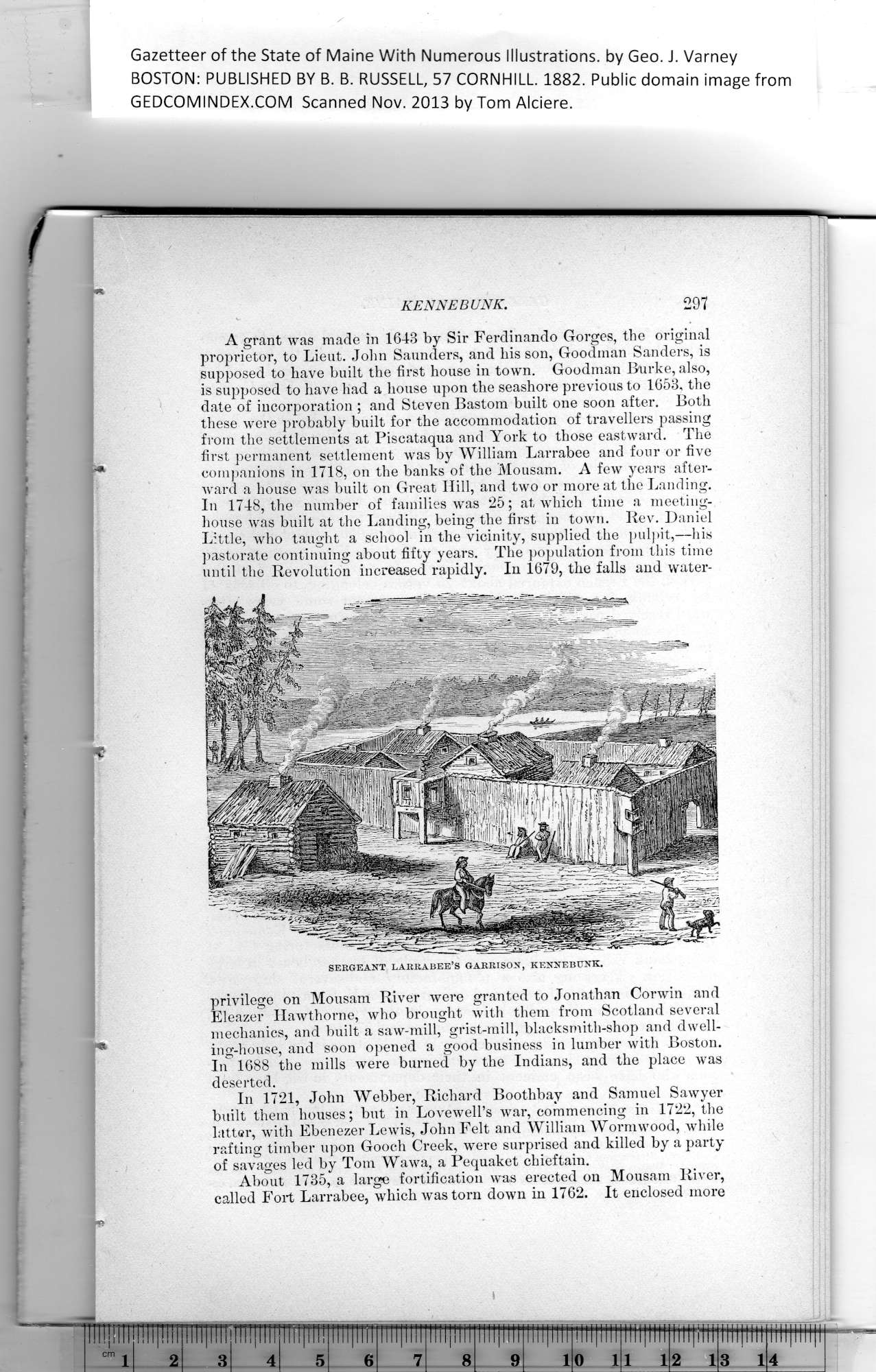|
Gazetteer of the State of Maine With Numerous Illustrations, by Geo. J. Varney
BOSTON: PUBLISHED BY B. B. RUSSELL, 57 CORNHILL. 1882. Public domain image from
KENNEBUNK. 297
A grant was made in 1643 by Sir Ferdinando Gorges, the original
proprietor, to Lieut. John Saunders, and his son, Goodman Sanders, is
supposed to have built the first house in town. Goodman Burke, also,
is supposed to have had a house upon the seashore previous to 1653, the
date of incorporation ; and Steven Bastom built one soon after. Both
these were probably built for the accommodation of travellers passing
from the settlements at Piscataqua and York to those eastward. The
first permanent settlement was by William Larrabee and four or five
companions in 1718, on the banks of the Mousam. A few years after-
ward a house was built on Great Hill, and two or more at tbe Landing.
In 1748, the number of families was 25; at which time a meeting-
house was built at the Landing, being the first in town. Rev. Daniel
Little, who taught a school in the vicinity, supplied the pulpit,—his
pastorate continuing about fifty years. The population from this time
until the Revolution increased rapidly. In 1679, the falls and water-
privilege on Mousam River were granted to Jonathan Corwin and
Eleazer Hawthorne, who brought with them from Scotland several
mechanics, and built a saw-mill, grist-mill, blacksmith-shop and dwell-
ing-house, and soon opened a good business in lumber with Boston.
In° 1688 the mills were burned by the Indians, and tbe place was
deserted.
In 1721, John Webber, Richard Boothbay and Samuel Sawyer
built them houses; but in Lovewell’s war, commencing in 1722, the
latter, with Ebenezer Lewis, John Felt and William Wormwood, while
rafting timber upon Gooch Creek, were surprised and killed by a party
of savages led by Tom Wawa, a Pequaket chieftain.
About 1735, a large fortification was erected on Mousam River,
called Fort Larrabee, which was torn down in 1762. It enclosed more
PREVIOUS PAGE ... NEXT PAGE
This page was written in HTML using a program written in Python 3.2
|
